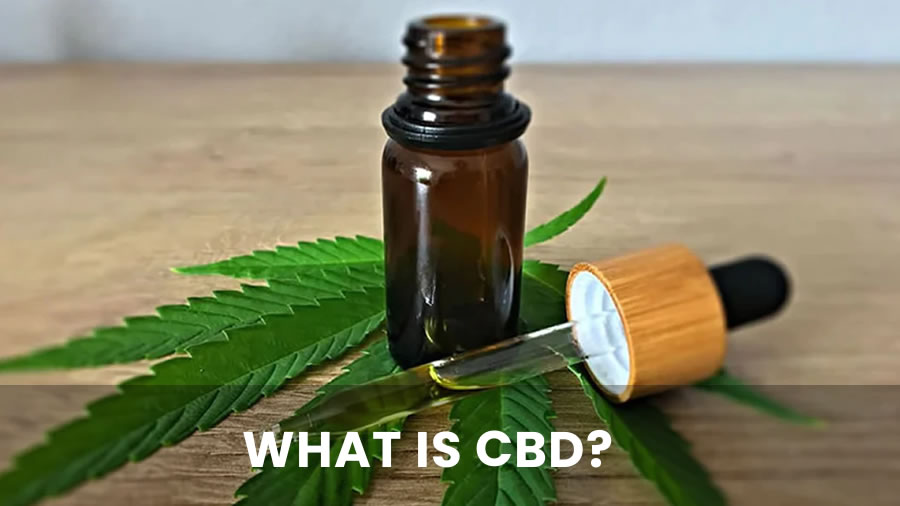
CBD is short for cannabidiol, which is a naturally occurring compound found in cannabis plants. While marijuana is often associated with the psychoactive compound THC, CBD does not produce the same "high" effect. CBD is believed to offer a wide range of potential benefits for various health conditions, including chronic pain, anxiety, and insomnia. However, there are still many questions about CBD, its safety, and its effectiveness.
What is CBD?
CBD is one of the many cannabinoids found in cannabis plants. Unlike THC, CBD does not produce psychoactive effects. CBD is often derived from hemp plants, which contain less than 0.3% THC. CBD can be consumed in various forms, including oils, tinctures, capsules, and gummies.
The Endocannabinoid System
To understand how CBD works, it's important to understand the endocannabinoid system (ECS). The ECS is a complex cell-signaling system that helps regulate various functions in the body, including mood, sleep, appetite, and immune response. The ECS consists of endocannabinoids, receptors, and enzymes. Endocannabinoids are naturally occurring cannabinoids produced by the body, while receptors are found on the surface of cells throughout the body.
Types of CBD Products
CBD products can be divided into three categories: full-spectrum, broad-spectrum, and isolate. Full-spectrum CBD products contain all of the cannabinoids, terpenes, and other compounds found in the hemp plant, including THC. Broad-spectrum CBD products contain all of the compounds found in full-spectrum products, except for THC. Isolate CBD products only contain CBD and no other compounds.
Benefits of CBD
CBD has been studied for its potential benefits in treating various health conditions, including chronic pain, anxiety, depression, and epilepsy. CBD is also believed to have anti-inflammatory and neuroprotective properties. However, more research is needed to fully understand the effects of CBD on different health conditions.
Potential Risks and Side Effects
While CBD is generally considered safe, it can cause some side effects in some people, including nausea, fatigue, and irritability. CBD can also interact with certain medications, so it's important to consult with a healthcare professional before using CBD products.
Legal Status of CBD
The legal status of CBD varies depending on the source of the CBD and the laws of the country or state. In the United States, CBD derived from hemp is legal under federal law, as long as it contains less than 0.3% THC. However, CBD derived from marijuana is still illegal under federal law, although some states have legalized it for medical or recreational use.
CBD Dosage
The optimal dosage of CBD depends on various factors, including the individual's weight, health condition, and the type of CBD product. It's important to start with a low dosage and gradually increase it until the desired effects are achieved. It's also important to consult with a healthcare professional for personalized recommendations.
How to Choose the Best CBD Product for You
When choosing a CBD product, it's important to consider factors such as the type of CBD, the dosage, and the method of consumption. Full-spectrum products may offer more benefits due to the entourage effect, which is the theory that all of the compounds in the hemp plant work together to produce a synergistic effect. However, broad-spectrum or isolate products may be preferable for those who want to avoid THC. It's also important to choose a reputable brand that uses third-party testing to ensure the quality and purity of their products.
How to Use CBD Products
CBD products can be consumed in various ways, including oral consumption, inhalation, and topical application. The method of consumption can affect how quickly the CBD takes effect and how long the effects last. For example, inhalation methods such as vaping or smoking may produce quicker effects but may also have potential risks to lung health.
Conclusion
CBD is a natural compound found in cannabis plants that has gained popularity in the health and wellness industry for its potential benefits in treating various health conditions. While more research is needed to fully understand the effects of CBD, it is generally considered safe and may be a useful addition to a healthcare regimen. When choosing a CBD product, it's important to consider factors such as the type of CBD, the dosage, and the method of consumption, and to consult with a healthcare professional before use.
FAQs
- Is CBD legal? Yes, CBD derived from hemp with less than 0.3% THC is legal under federal law in the United States.
- Does CBD get you high? No, CBD does not produce psychoactive effects and does not get you high.
- What are the potential benefits of CBD? CBD has been studied for its potential benefits in treating various health conditions, including chronic pain, anxiety, depression, and epilepsy. CBD is also believed to have anti-inflammatory and neuroprotective properties.
- What are the potential side effects of CBD? While CBD is generally considered safe, it can cause some side effects in some people, including nausea, fatigue, and irritability. CBD can also interact with certain medications, so it's important to consult with a healthcare professional before using CBD products.
- How do I choose the best CBD product for me? When choosing a CBD product, it's important to consider factors such as the type of CBD, the dosage, and the method of consumption. It's also important to choose a reputable brand that uses third-party testing to ensure the quality and purity of their products. Consult with a healthcare professional for personalized recommendations.







